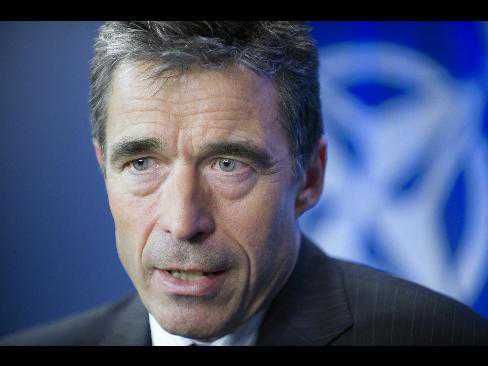Nobert Yevdayev, editor-in-chief of New York-based Russian language newspaper “Noviy Rubezh” (‘New Frontier’) and chairman Azerbaijani Friendly Association AZEM spoke in an interview with Day.Az.

Nobert Yevdayev, born in Baku in 1929, is a truly unique and more than a versatile person. Jazz musician, poet, painter, journalist, author of numerous scientific papers – this is not the whole list of his hobbies and achievements.
Since 1989, the former from Baku resident lives in the United States and since 2003 publishes the newspaper “Noviy Rubezh”. In an interview Day.Az Yevda tells how the newspaper began publishing, about Azerbaijanis and migrants from Azerbaijan living in the States and the intrigues of the Armenian diaspora.
Day.Az: How did you decide to publish a newspaper? What is the aim of “Noviy Rubezh”?
Nobert Yevdayev: In 2003, upon the recommendation of one of my friends, I was invited by leaders of Mountain Jewish Community with a request to publish a newspaper. My conditions were as follows – not to be confined to narrow communal interests and to publish a newspaper with general information of world political and cultural international events.
The newspaper is published since May 2003. It has 32 pages. It appears once a month and does not contain news. The newspaper publishes articles in English, Russian, Azerbaijani and Gorski Jewish languages. A total 3,000 are released. In addition New York City, the newspaper is circulated in mountain Jewish communities abroad including Moscow, Baku, Tel Aviv, Berlin and Toronto.
Q: How many Azerbaijanis and migrants from Azerbaijan live in New York according to your own estimations?
A: We do not have statistics. But the most active part of people from Azerbaijan meet every year to celebrate Novruz. This festival is celebrated by several organizations, in particular, the Permanent Mission of Azerbaijan to the UN in New York restaurant ‘Baku Palace’, Association of Azerbaijanis living in the United States and the Association of Azerbaijanis living in New York. Each of the events unite at most 300 people.
As the most prominent representatives of Azerbaijani people living in the U.S. I can note Nargiz Shakynskaya – a well-known observer and presenter in the American TV channel, Azim Sadykhov – filmmaker and Award Winner of film festivals in the United States, Telman Jalilov – Honored Artist of Azerbaijan and the head of the Azerbaijani national dance, Chingiz Sadikhov – well-known pianist and the accompanist of Rashid Behbudov and Muslim Magomayev in the past, Anna Toporovski – a well-known radio commentator which broadcasts the events taking place in the White House and many others. Of course, this is not an exhaustive list of known great Azerbaijanis. However, many migrants from Azerbaijan live in the U.S. whom we do not know.
Q: Resistance of young but already quite strong and influential Azerbaijani diaspora against famous Armenian diaspora in the United States in the past few years has been very active. What is the superiority and inferiorty of Azerbaijani diaspora over and to the Armenian diaspora?
A: Armenian Diaspora, particularly in New York, is not an organized force that could confront us. It does not have its media, it does not hold public events, in any case, like we do. We follow mainly Russian-language press which sometimes publishes forgeries related to the confrontation.
We find this kind of fakes and expose them and publish stories of exposure in our newspaper. For example, articles in the newspaper ‘In a New light’ which published photos of victims of Khojaly genocide allegedly to be victims of so-called “genocide” of Armenians in the Ottoman Empire. We contacted the editor, invited him to the Mission of Azerbaijan to the UN where he had to apologize for the correspondent who resorted to such provocation. In our paper we very much emphasize positive developments in Azerbaijan where tolerance towards different nationalities and confessions triumphs.
Neither Russian-language nor English-language press stages anti-Azerbaijani propaganda in New York. There are no Armenian newspapers here. Mostly, propaganda goes on internet which is full of misinformation. I think there are enough skilled forces in Azerbaijan that can confront this tool.
Azerbaijan Association of New York also publishes its own newspaper ‘Azerbaijan Review’ in Azerbaijani, English and Russian languages. This paper pays much attention to the Karabakh conflict. I helped to create this newspaper and I am a member of its editorial board. We believe that this topic is not wide-spread in New York press. This topic should be widely covered in the Los Angeles newspapers where a very large Armenian community resides.
Moreover, we believe that today the main work should be done by politicians to win over the field of lobbying in Congress where Armenians have a very strong position We, on our part, are making efforts to communicate with important Jewish organizations to create a positive image of Azerbaijan for them. One of the results of our work is that for the second consecutive year, representatives of Azerbaijan are invited to the so-called breakfast with congressmen, where lawmakers talk about their work in Congress. Except representatives of Azerbaijan, no representatives from any other participate in the meeting.
http://www.today.az/news/politics/55306.html









